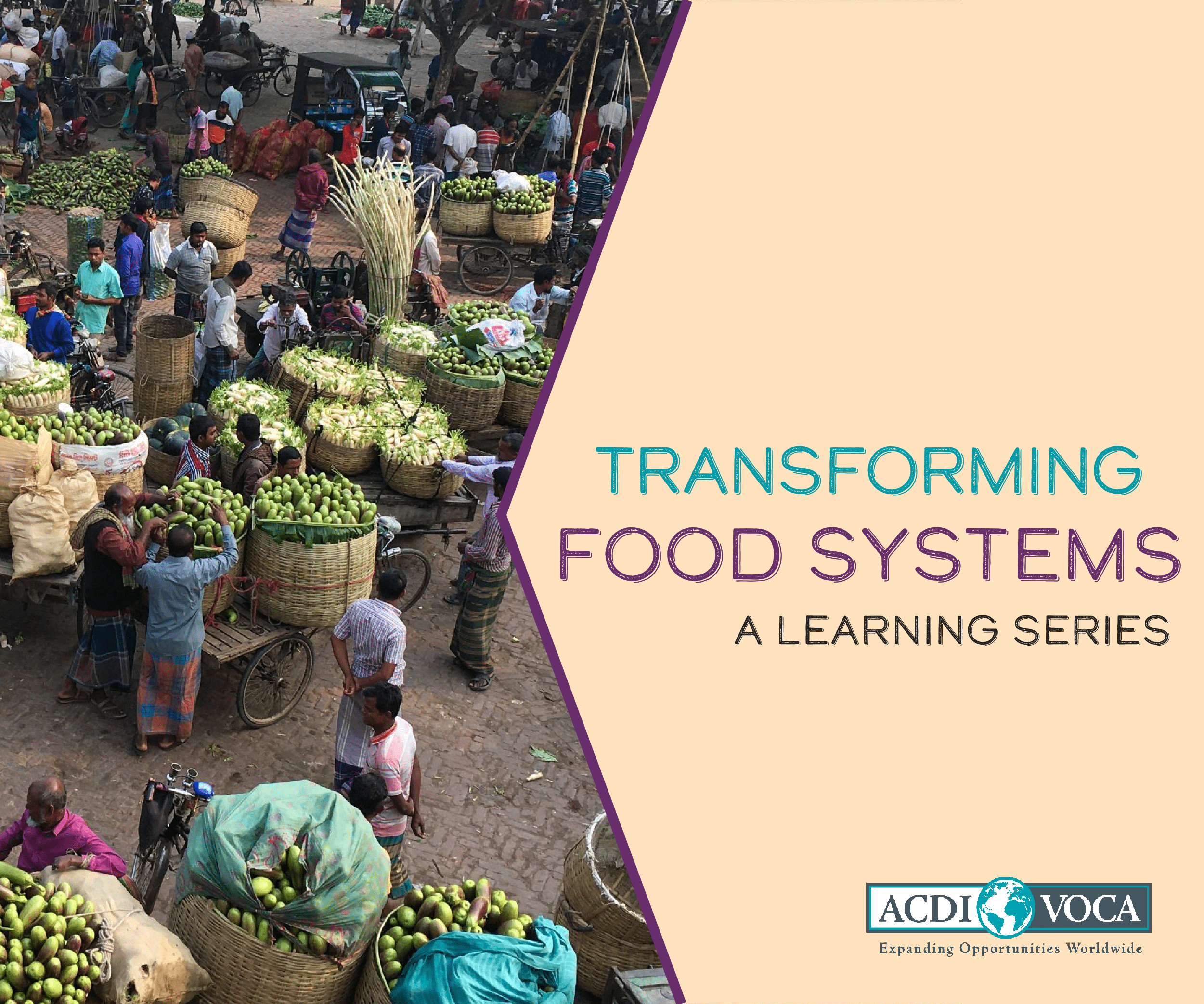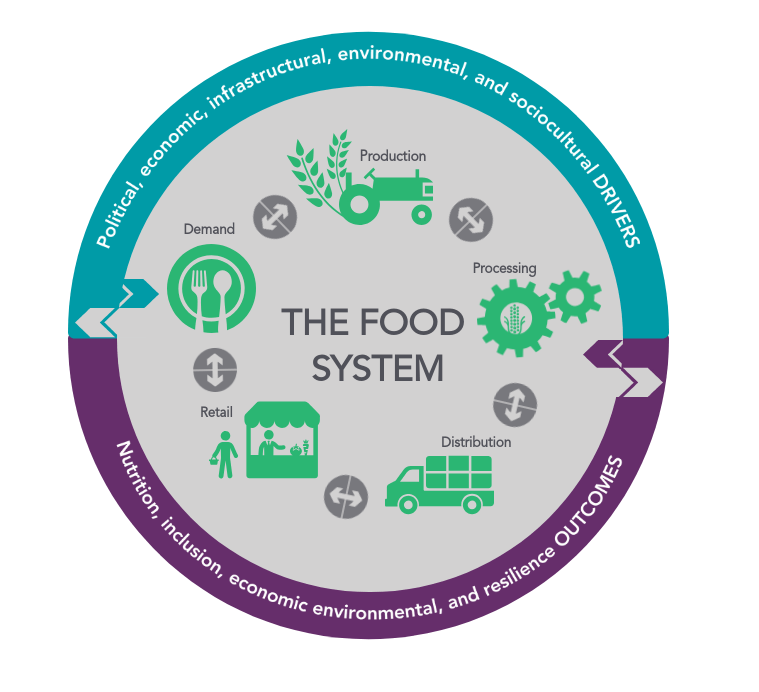
The Importance of a Food Systems Approach
The development community has recently recognized that we are not on track to meet the Sustainable Development Goals (SDGs) by 2030. Aiming to revitalize efforts towards these goals, development experts have prioritized food systems transformation as key to getting back on track to attaining the SDGs. The draft 2022-2026 Global Food Security Strategy, which lays out USAID’s Feed the Future objectives and priority areas of funding, identified the “elevation of a food systems approach” as one of their four new priority areas of emphasis and action. ACDI/VOCA supports this new lens and is actively engaging in food systems transformation in our implementation of projects around the world.
Defining the Food System
Broadly, the food system provides the jobs we rely on for income, the food we eat, and the positive or negative effects on the environment and climate around us. Drawing from the Food and Agriculture Organization’s (FAO) definition, the food system stretches from the production of food to the final end-consumer who consumes what the system produces. It includes the range of actors and systems involved in the food supply chain, which moves food from production, processing, distribution, and/or retail to the final consumer. The food system is influenced by external drivers, such as political, environmental, or economic drivers, that can positively or negatively affect the strength of any part of the food supply chain. ACDI/VOCA works to strengthen the food system and – optimizing how food is produced, moved, processed, marketed, and consumed – as well as by addressing external drivers of the food system.

Transforming the Food System
ACDI/VOCA applies its inclusive market systems (IMS) approach to transform food systems to better provide livelihood opportunities, promote dietary diversity, empower individuals, while withstanding shocks and stressors in the face of climate-change and local, regional, and global threats. We apply key principles of our IMS approach to achieve the following outcomes within the food system:
- Consumption of safe, nutritious foods that provide sufficient energy and nutrients to all – via the increased availability, accessibility, affordability, and desirability of food for all.
- Drawdown of carbon and the preservation of biodiversity – via the protection of ecosystems, the sustainable management of productive land, and the restoration of degraded land.
- Inclusive economic prosperity – via the growth of inclusive livelihood opportunities within the food system, particularly for women, youth, and other marginalized groups.
- Household and market-level resilience – via a system that can withstand vulnerabilities, shock, and stressors to continue supporting livelihoods and the provision of food for all.
Our IMS approach begins with analysis, looking beyond the symptoms to uncover the root causes of poor market performance. We cocreate solutions to develop a strategy for changes that a system needs. We align our resources and collaborate with local partners to facilitate that change. Along the way, we identify partnerships and monitor, evaluate, learn, and adapt as we discover new information that evolves our strategy.
ACDI/VOCA’s Participation in Food System Transformation Work
Although the term food system is new, ACDI/VOCA has been working in food systems for almost 60 years through projects that have supported agricultural productivity of edible foods, output market development, increased consumer demand for food, or shifts in the enabling environment that affect the performance of the food supply chain. Nonetheless, the time has come for ACDI/VOCA, like other implementing partners, to focus intentionally on food systems transformation and achieve the aforementioned outcomes.
In this multi-part blog series, we will be exploring the food system in more depth. Stay tuned for an upcoming blog focused on how we achieve critical outcome areas, such as improved nutrition or resilience, by taking a food systems approach to global development.





